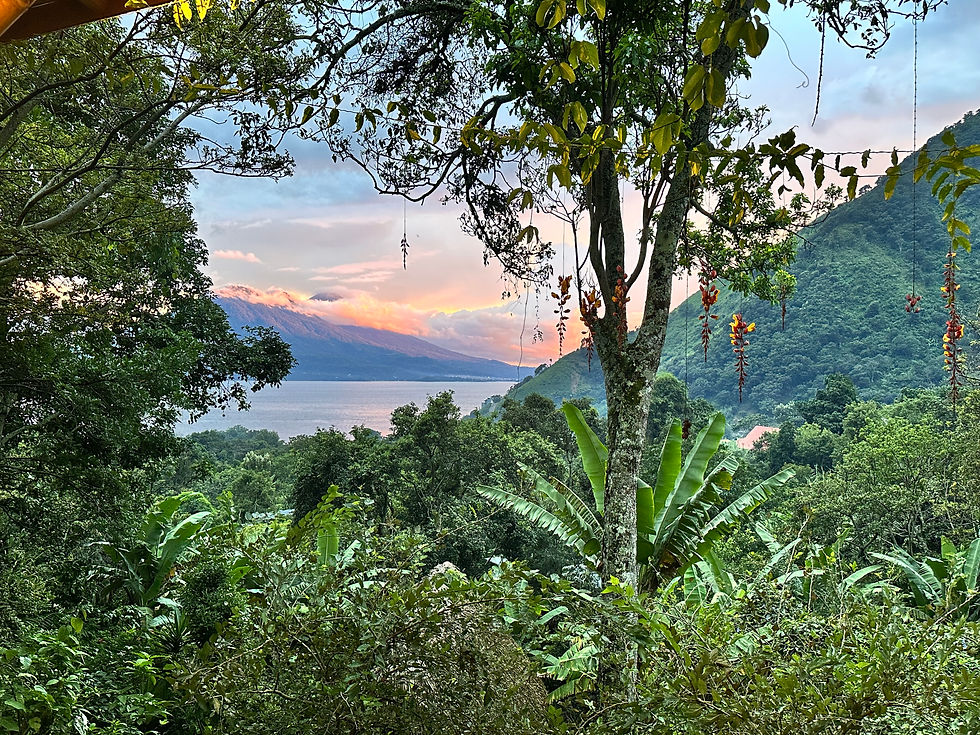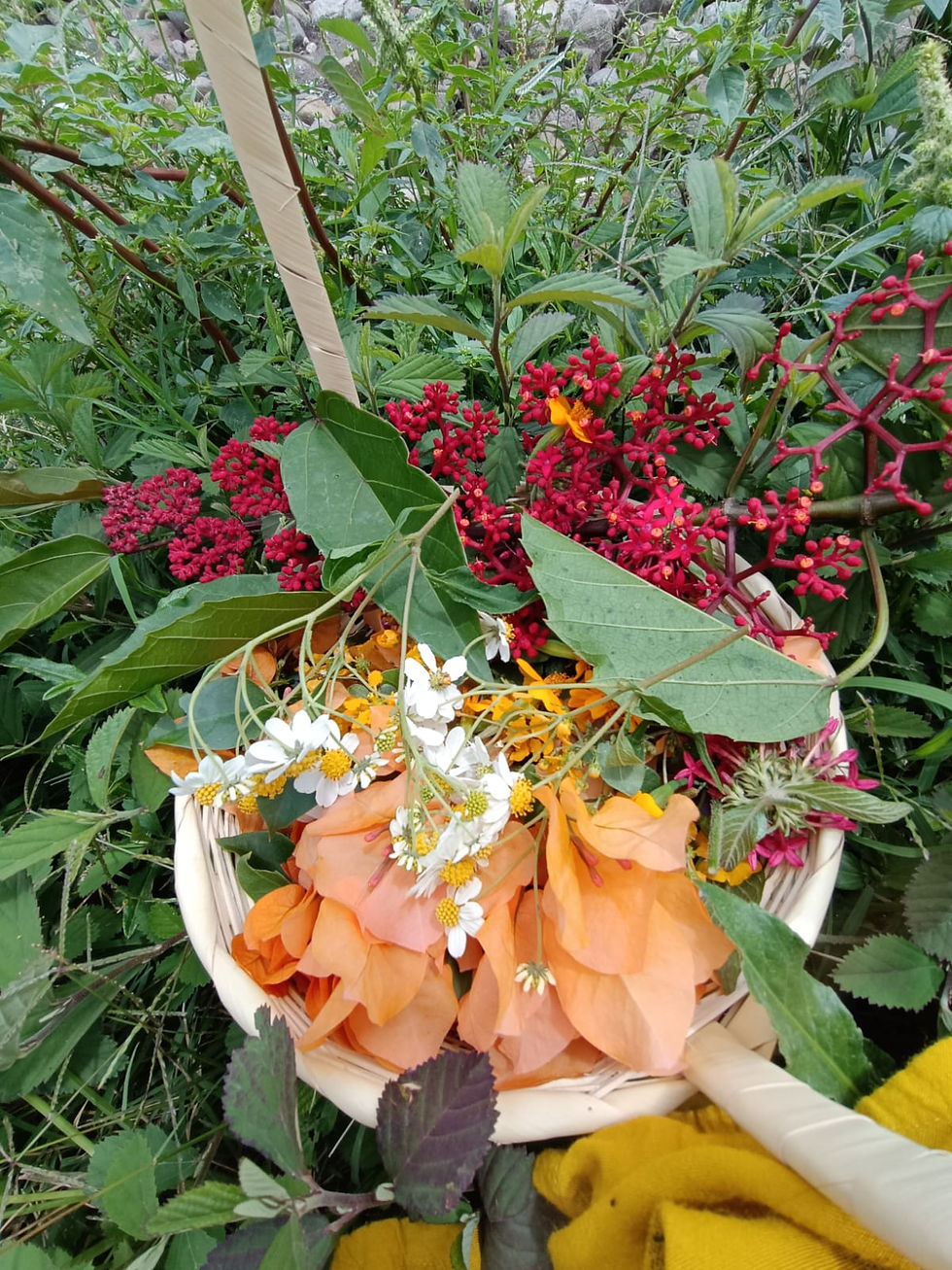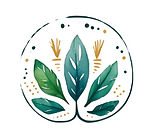I'm Sorry. Please Forgive me. Thank you. I love you.
- Emilie Street
- Nov 2, 2024
- 4 min read
It often baffles me, how little attention we give to the earth beneath our feet. The place from which we came. The mother that birthed us and all of life on Earth.
For some time now, I’ve been longing to explore this connection more deeply. A desire which brought me to Permaculture for the Herbalist’s Path, a training that encompassed both herbalism and permaculture at Lake Atitlan in Guatemala.
The instructors included long time herbalists and permaculture teachers Sarah Wu and Lala Palmieri as well as permaculture and garden design educator, Santi Moringa. All three were kind, knowledgeable and generous with their time and energy.

They created a safe space, setting the stage for the training by beginning with a day dedicated to the importance of diversity and inclusion. They highlighted how inclusion is at the forefront of their work and invited us to consider how this same spirit of inclusion could be integrated not only into the training but into our lives outside of the training. After all, creating a world that is sustainable and regenerative, where we consciously and actively care for the health of our communities and our ecosystems, requires a lens that considers the whole rather than the few. It’s arguably the most inclusive work we can do.
Keeping this framework in mind, we learned a whole host of topics concerning the reciprocal relationship between plants and people—how they can serve us, how we can serve them—topics like medicine making, plant dying, plant propagation and garden design, just to name a few, and all along the way reflected on the sacred power of this relationship.
I am convinced that in the grand scheme of my life, these three weeks will turn out to be some of the most impactful—a turning point of sorts, a not so subtle reminder of who I really am, of what I truly believe, and of the impact I hope to make.
On the last day of our training, we had a ceremony to honor the Lake. When we arrived, one of our teachers guided us through a practice to connect with the plants. As we held them in our hands, she instructed us to ask the plants what they had to teach us.

In my initial desperation to connect, I felt very little. Yet, given the space and time, I began to soften. I closed my eyes and let go of the search for poetic meaning. In this moment of surrender, I considered how many of us experience this desperation to connect.
How many of us feel alone.
How many of us suffer under the illusion that we are separate from one another.
I reflected on my young college self— remembering the anger I felt for injustice, discrimination, for mistreatment of those that have done no wrong. I was a “social justice warrior” one might say—my opinions well-advertised to those around me. And while I still believe in the work I did during that time, the anger that fueled my activism was unsustainable. I often burned bridges before I built them—pointing a finger rather than extending a hand.
Of course, as we know, when we experience anger there is usually something deeper lying underneath. Something tender, something gentle—a deeper hurt than we care to acknowledge, and so we build up our walls to protect that gentle part of us. The part of us that longs only for love, for understanding and for connection.
I realized that what truly fueled me all those years was not anger, but grief. The deep grief that we all carry from having lost connection with one another. From having lost connection with the natural world we’re inextricably tied to.
I opened my eyes again, looked down at the plants. As I took in their subtle details, I saw myself reflected back. The patterns of their leaves reflected in the folds of my hands. The fibers of their stems mirroring the hairs on my head. Each part of them, a part of me. A reminder of our co-arising with the world around us.

I was brought to tears as the plants reminded me of the reality that we are never alone—that connection is inherent to our being, for we all come from the same source, we all come from the same home.
When it came time to offer the plants, we shared a song for the lake and for the earth—a Ho’oponopono, a Hawaiian prayer for forgiveness and reconciliation. The song included just a few simple lines repeated over and over again. “I’m sorry. Please forgive me. Thank you. I love you.”
As we sang together, my tears continued to flow. Looking at the lake, I noted the juxtaposition of the floating trash next to our plant offerings. I felt the weight of the damage that we have caused, our treatment of this world as something that is disposable, rather than an integral part of our being.
It’s like we all decided to forget the place from which we came.
We all decided to forget the place that feeds us, that gives us air to breath and water to drink.
We all decided to forget that the mother, the goddess, the altar beneath our feet is the most important one we have access to.
That we do not worship her and break into tears for our mistreatment of her is beyond me.
That we do not worship each other and honor our sacred connection to this giver of life and to each other is beyond me.
That our oneness was ever in question is beyond me. And to be asleep to this oneness is the collective grief we carry.
And so for the Earth, for my body, for my friends, for my family, for all the people, plants, animals, beings in my life that I may have harmed or unconsciously neglected in the past, present and future, to you I say "I'm sorry. Please forgive me. Thank you. I love you."
It is only through our reconciliation, our love, and our gratitude that we can light the way back to connection, and it is my prayer that in doing so, we can provide healing for ourselves and healing for the world around us.

























Comments